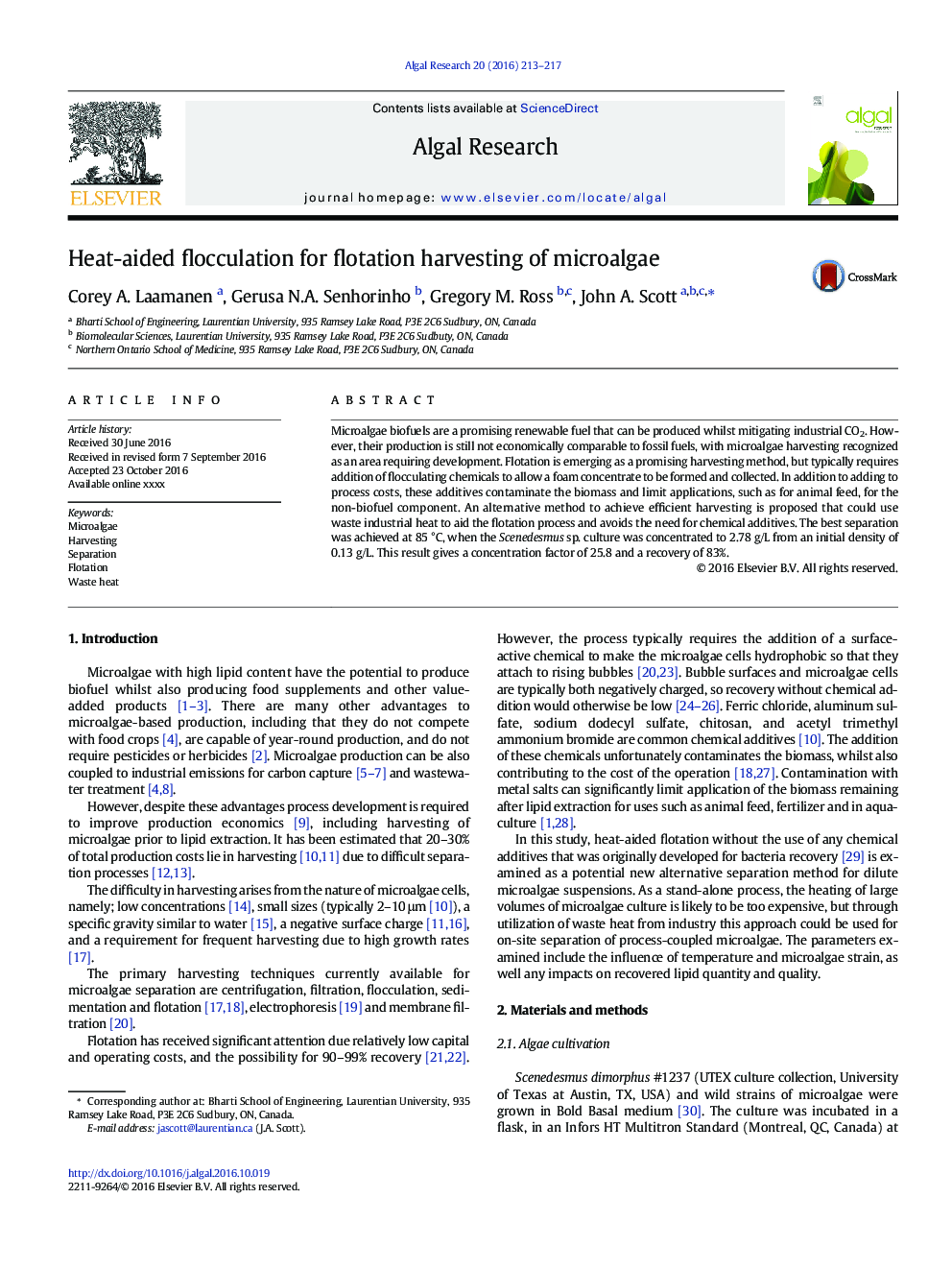| Article ID | Journal | Published Year | Pages | File Type |
|---|---|---|---|---|
| 5478589 | Algal Research | 2016 | 5 Pages |
Abstract
Microalgae biofuels are a promising renewable fuel that can be produced whilst mitigating industrial CO2. However, their production is still not economically comparable to fossil fuels, with microalgae harvesting recognized as an area requiring development. Flotation is emerging as a promising harvesting method, but typically requires addition of flocculating chemicals to allow a foam concentrate to be formed and collected. In addition to adding to process costs, these additives contaminate the biomass and limit applications, such as for animal feed, for the non-biofuel component. An alternative method to achieve efficient harvesting is proposed that could use waste industrial heat to aid the flotation process and avoids the need for chemical additives. The best separation was achieved at 85 °C, when the Scenedesmus sp. culture was concentrated to 2.78 g/L from an initial density of 0.13 g/L. This result gives a concentration factor of 25.8 and a recovery of 83%.
Related Topics
Physical Sciences and Engineering
Energy
Renewable Energy, Sustainability and the Environment
Authors
Corey A. Laamanen, Gerusa N.A. Senhorinho, Gregory M. Ross, John A. Scott,
